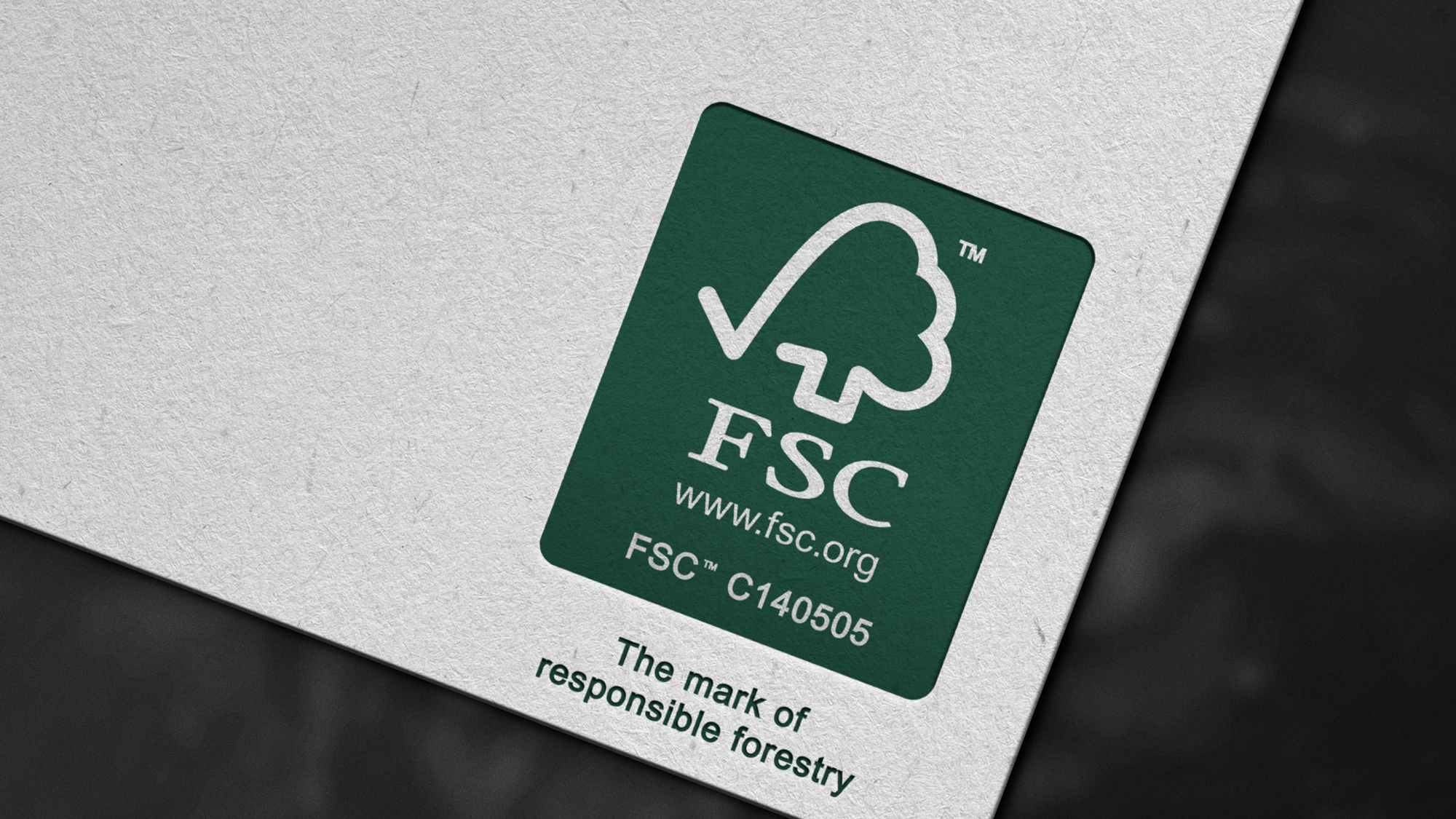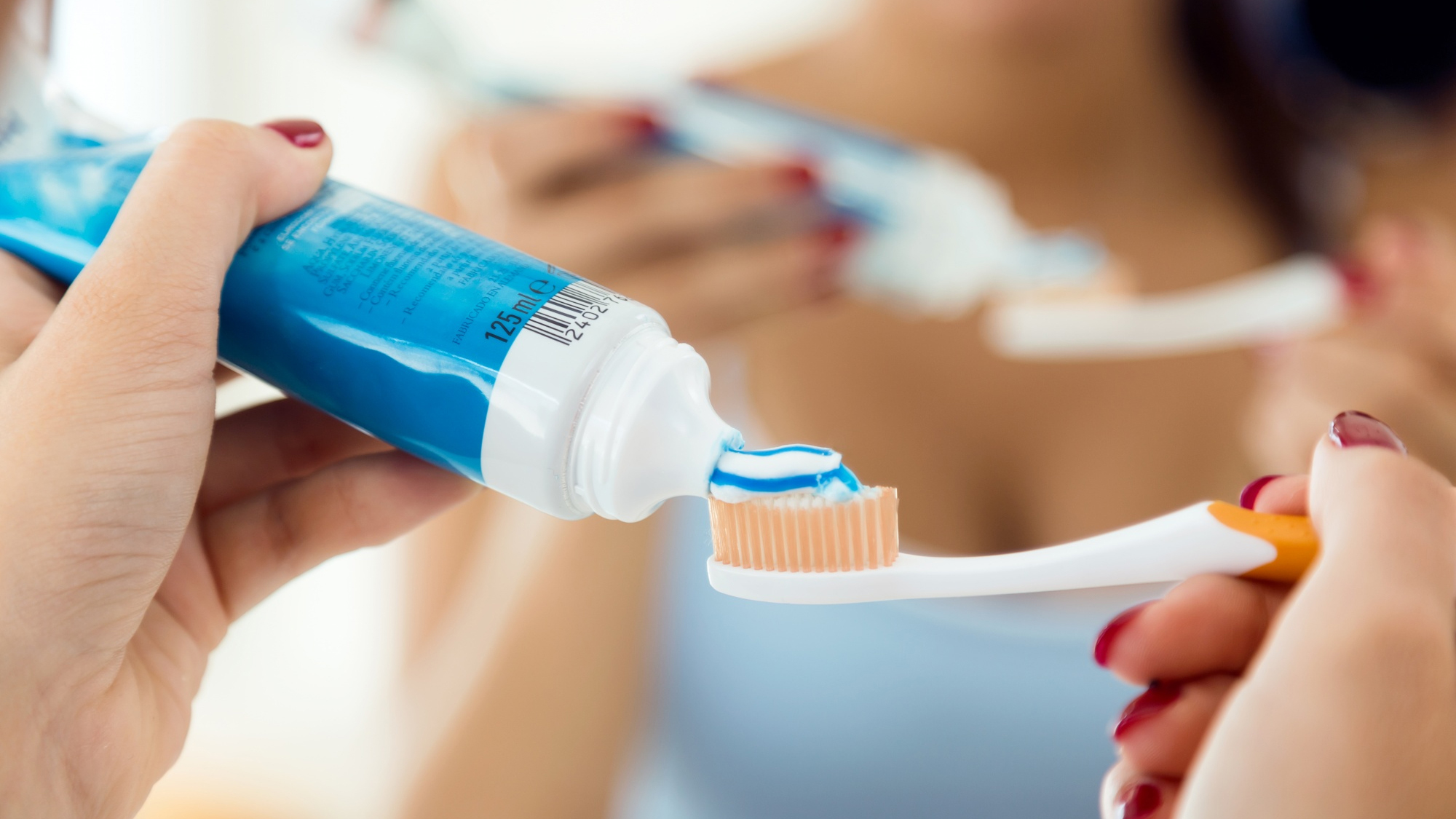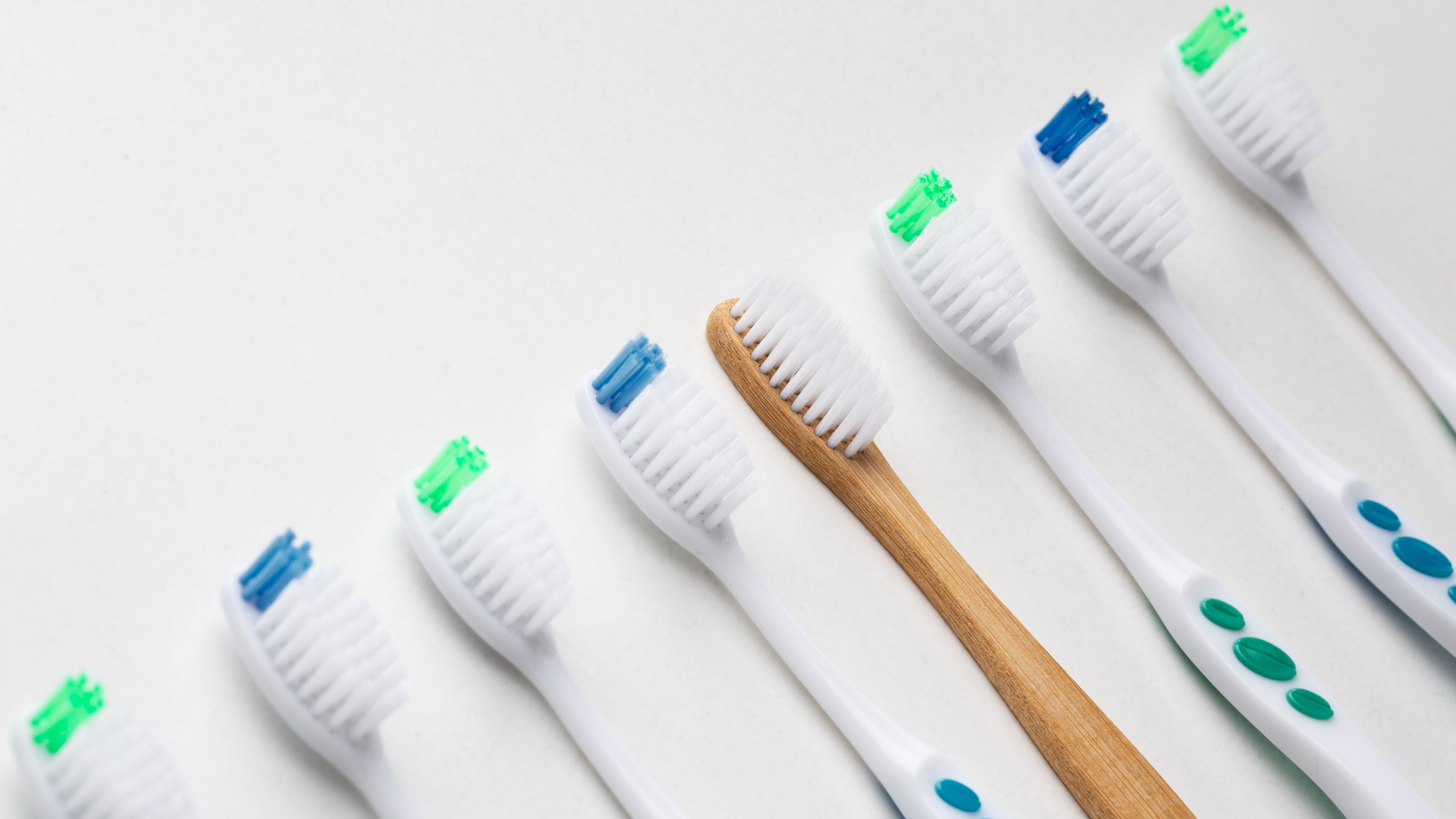Oral Care Packaging: Embracing Sustainability with DrTung's Perio Sticks™
Unpacking Sustainability: The Future of Oral Care Packaging
In our journey to tread lightly on Earth, the shift to sustainable living has touched every corner of our lives, with oral care stepping into the spotlight. Gone are the days when our only options were products wrapped in guilt-inducing plastic. Today, we're reimagining dental hygiene with the earth in mind, and leading the charge is our very own hero, DrTung's Perio Sticks.
This narrative isn't just about brushing and flossing; it's a deep dive into how the choices we make at the bathroom sink can ripple out to the oceans.
Our mission? To swap out those old-school tubes and bottles, notorious for their environmental faux pas, with something kinder, greener, and just as effective.
Join us as we unravel the magic behind sustainable packaging—where FSC paperboard is not just a buzzword but a beacon of hope.

The Impact of Traditional Packaging in the Oral Care Industry
As we brush up on the impact of our daily routines, it's high time we talk trash—specifically, the packaging kind that’s been cluttering up our planet. The oral care aisle, like many others, has been a long-time contributor to the globe's growing waste problem. Toothpaste tubes and plastic bottles, the usual suspects, are often caught red-handed, being tough to recycle and far from eco-friendly. These materials are more than just a nuisance; they're a significant player in the waste that's taking over our landfills and, even more heartbreakingly, our oceans.
Peeking into the statistics shared by the European Union, it’s clear we’ve got a packaging predicament on our hands. With over 150 kg of packaging waste per person piling up in 2021 across 16 EU countries, and spots like Ireland and Germany tipping the scales at over 236 kg per inhabitant, the message couldn’t be louder: we’re on a slippery slope. And while we've been making strides towards recycling, with corrugated boxes boasting a 96.5% recycling rate, the bigger picture shows we're only skimming the surface. The overall packaging waste recycling rate? It's hovering around 64.0% in recent years, signaling a sizable chunk of materials still missing the recycling bin.
In the United States, we're navigating a recycling riddle not too dissimilar from our friends overseas. Take steel packaging, for example—think food cans and their kin—sporting a recycling rate of 73.8% back in 2018. Not too shabby, right? But then we glance over at aluminum, and the picture gets a bit murkier. Our beloved aluminum beverage cans were only recycled at a rate of 50.4% in the same year. And don't get us started on plastic. With a jaw-dropping 14.5 million tons of plastic containers and packaging thrown into the mix in 2018, the slice of that pie getting recycled was, frankly, more crumb than slice.
This tale of materials paints a vivid picture of the hurdles we face in the quest for a cleaner, greener planet. Yet, it's also a rallying cry for us all to double down on those eco-friendly habits, proving that every bit of effort counts in the grand recycling race.
(US EPA).
Swirling in our global village, a staggering 350 million tonnes of plastic waste takes the stage annually. Yet, believe it or not, just a tiny sliver—0.5%—finds its way to the embrace of our oceans. The plot thickens as we peek into how different corners of our world deal with this plastic predicament. Europe leans heavily on incineration, while over in the United States, landfills become the final resting place for the lion’s share of plastics.
This juggling act of plastic waste, with its missteps and mishandlings, plays a lead role in the drama of environmental pollution. It’s a clear signal, loud and echoing, calling for a curtain rise on improved waste management strategies.
The goal? To lessen our footprint on this stage we call Earth, ensuring the show can go on for generations to come.
(Our World in Data).
These statistics highlight the urgent need for the oral care industry, among others, to shift towards more sustainable packaging solutions. By reducing reliance on traditional, non-recyclable packaging options and embracing more eco-friendly alternatives, we can make a substantial difference in reducing the environmental footprint of our daily oral care products.

Sustainable Alternatives: FSC Paperboard
In the quest for more environmentally friendly packaging options within the oral care industry and beyond, FSC (Forest Stewardship Council) paperboard emerges as a promising sustainable alternative to traditional materials.
FSC Paperboard: A Green Choice
FSC paperboard isn't just any material—it's a testament to what happens when we decide to treat our planet with the respect it deserves. Harvested from forests under the watchful eye of the Forest Stewardship Council, this paperboard is all about maintaining balance. It ensures that for every tree hugged goodbye, another gets to spread its roots, keeping the cycle of life rolling. This isn't just about paper; it's about preserving biodiversity, uplifting communities, and making sure our green practices are as economically savvy as they are eco-friendly.
The benefits of using FSC paperboard in packaging are manifold:
Reduced Environmental Impact: FSC paperboard contributes to lower carbon emissions compared to non-certified paperboard production. Its production process is geared towards minimizing waste and using less energy.
Recyclability and Biodegradability: FSC paperboard is highly recyclable, which reduces the demand for virgin paper pulp and lessens the packaging's overall environmental footprint. Additionally, being biodegradable, it doesn't linger in the environment for years.
Sustainable Forestry Practices: The FSC certification ensures that the paperboard comes from forests that are managed with strict environmental, social, and economic standards, promoting a balance between harvested and regrown trees.

The Problem with Plastic in Oral Care
The oral care industry, mirroring broader consumer goods sectors, heavily relies on plastic for packaging. From toothpaste tubes to toothbrushes and floss containers, plastic's versatility and low cost make it a ubiquitous choice. However, this convenience comes with significant environmental repercussions, underpinned by challenges in recycling and the broader issue of consumer responsibility.
Recycling Challenges
Plastic packaging in oral care presents numerous recycling challenges. One major hurdle is the complexity of materials used. Many toothpaste tubes, for instance, are made from a combination of plastic and aluminum, complicating the recycling process. Additionally, small items like toothbrushes and floss picks are often filtered out during the sorting process in recycling facilities due to their size, leading to a higher likelihood of them being disposed of in landfills or incinerators.
The recycling rates for plastics tell a concerning story. Globally, only a small fraction of plastic waste is recycled, with the vast majority ending up in landfills or, worse, the natural environment, where it can take hundreds of years to degrade, releasing harmful chemicals in the process. The specific figures vary by region and material but consistently point to a systemic issue with plastic waste management.
Consumer Responsibility
Consumer choices play a pivotal role in addressing the plastic problem in oral care. Awareness and demand for sustainable packaging can drive change within the industry, encouraging companies to explore and adopt alternative materials. By opting for products with eco-friendly packaging, consumers can reduce their environmental footprint and support the shift towards a more sustainable oral care sector.
The impact of choosing sustainable packaging extends beyond reducing plastic waste. It also involves considering the lifecycle of products, from production through to disposal. Products designed with sustainability in mind often use less energy and resources in their production and are more easily recycled or composted, further lessening their environmental impact.
In conclusion, the problem with plastic in oral care is multifaceted, involving technical recycling challenges and broader issues of consumer behavior and corporate responsibility. Tackling this problem requires a collective effort from manufacturers, consumers, and waste management entities to prioritize sustainability and reduce the industry's reliance on traditional plastic packaging.

DrTung's Perio Sticks - A Plastic-Free Solution
In this world where caring for the environment is not just commendable but crucial, we at DrTung's are proud to lead the way with our Perio Sticks. These gems in the world of oral care not only boost your dental hygiene to expert levels but also boldly bid farewell to plastic, thanks to their 100% plastic-free packaging. They are a testament to our commitment to both your health and the planet's wellbeing, offering a perfect solution for anyone eager to refine their oral care routine while keeping the earth clean.
Eco-friendly from the Ground Up
DrTung's Perio Sticks are meticulously crafted from Eco-certified Nordic birch, a material chosen for its natural durability and sustainability. This choice reflects a broader commitment to minimizing environmental impact, aligning with the values of consumers who prioritize eco-conscious living. The use of Nordic birch not only ensures the product's biodegradability but also its renewable sourcing, contributing to a cycle of sustainability that extends from forest management to your oral care routine.
Biodegradability and Effectiveness
Aside from their environmental benefits, DrTung's Perio Sticks excel in their primary function—oral care. Designed to clean between teeth effectively, these sticks offer a superior alternative to traditional plastic flossers. Their unique shape and material provide a comfortable, effective cleaning experience, promoting gum health and reducing plaque buildup without adding to the planet's plastic burden.
Sustainable Oral Care
We invite you to experience the difference with DrTung's Perio Sticks. By choosing these plastic-free dental sticks, you're not just opting for an effective oral hygiene product; you're making a conscious decision to support environmental sustainability. Let's take a step towards a greener planet, one smile at a time.
Click the button below to start your journey towards sustainable oral hygiene with a product that cares for your teeth as much as it does for the earth.
Together, we can make a significant impact, reducing plastic waste and promoting practices that ensure the well-being of our planet. Join us in this crucial movement towards sustainability, starting with your oral care.
Incorporating Sustainable Practices in Daily Oral Care
Adopting a more eco-friendly oral care routine is not only beneficial for your health but also for the planet. Here are several practical tips to make your dental hygiene regimen greener, focusing on sustainable packaging and ingredients, and considering the lifecycle of products from purchase to disposal.
1. Choose Products with Sustainable Packaging: Opt for oral care products that use minimal packaging, and when packaging is necessary, ensure it's made from recycled or recyclable materials. Brands like DrTung's, which offer products in 100% plastic-free packaging, are leading the way in reducing the environmental impact of oral care products.
2. Look for Natural Ingredients: Seek out toothpaste and other dental care items that contain natural ingredients, avoiding those with harmful chemicals. Products made with organic and sustainably sourced components are gentler on your mouth and the planet.
3. Ditching Plastic Picks for DrTung's Perio Sticks: One of the simplest yet most impactful switches you can make in your oral care routine is trading in traditional plastic toothpicks for DrTung's Perio Sticks. Crafted with eco-consciousness at heart, these sticks offer a sustainable alternative without compromising on your dental health needs. Their design and materials not only support the health of your gums and teeth but also champion the cause of reducing plastic waste, aligning perfectly with a lifestyle that prioritizes both personal wellness and environmental sustainability.
4. Proper Disposal: Be mindful of how you dispose of oral care products. Recycle packaging where possible and participate in recycling programs for items like toothbrushes and toothpaste tubes, which are not traditionally recyclable through curbside programs.
5. Educate Yourself and Others: Stay informed about the environmental impact of oral care products and share your knowledge with friends and family. Awareness is the first step towards change.

Think About the Lifecycle of Products
Considering the lifecycle of the products you use—from the sourcing of ingredients to production, packaging, shipping, and finally, disposal—can help you make more sustainable choices. Opting for products with a minimal environmental footprint at each stage of their lifecycle supports broader efforts to combat plastic pollution and preserve natural resources.
Your Daily Routine Matters
Every choice we make in our daily oral care routine can contribute to a healthier planet. By incorporating these sustainable practices into your regimen, you're not only taking care of your dental health but also supporting environmental sustainability. Let's commit to making eco-friendly choices that benefit our smiles and the world around us.
Conclusion:
The transition towards eco-friendly oral care products is not just a trend; it's a necessary shift to address the pressing environmental challenges of our time. As consumers, we wield significant power in driving change towards sustainability, with every purchase decision reflecting our commitment to preserving the planet. The oral care industry, with its reliance on plastic packaging and non-biodegradable materials, is ripe for transformation, and by choosing products that prioritize eco-friendly packaging and natural ingredients, we can collectively make a profound impact.
DrTung's Perio Sticks epitomize the potential for sustainable innovation within the oral care sector. By offering a 100% plastic-free, biodegradable solution made from Eco-certified Nordic birch, these dental sticks not only promote oral hygiene but also embody the principles of environmental stewardship. The success of such products underscores the viability of sustainable alternatives and the growing consumer demand for brands that align with eco-conscious values.
As we move forward, it's crucial to remember that sustainable living extends beyond individual actions to a broader cultural shift. By embracing eco-friendly oral care practices, sharing knowledge, and supporting companies that are committed to sustainability, we can contribute to a healthier planet and a more sustainable future.
Let the choice of DrTung's Perio Sticks be a step towards integrating sustainable practices into every aspect of our daily lives, reinforcing the importance of thoughtful consumption and the power of collective action in fostering a greener world.
Shop DrTung’s PerioSticks and Floss
FAQ:
What is FSC paperboard, and why is it used?
FSC paperboard is sourced from forests that are managed responsibly to ensure environmental, social, and economic benefits. It is used in packaging for its sustainability, renewability, and recyclability, reducing the carbon footprint associated with product packaging.
Can DrTung's Perio Sticks be used by everyone?
Yes, DrTung's Perio Sticks are designed for comfort and efficacy, with a slim, curved triangle profile that fits comfortably between teeth. They are suitable for anyone looking to enhance their oral hygiene routine while being mindful of the environment.
How do I dispose of DrTung's Perio Sticks responsibly?
Since DrTung's Perio Sticks are made from naturally biodegradable birch wood, they can be composted after use. This ensures a minimal environmental footprint by returning the sticks to the earth in an eco-friendly manner.
Where can I purchase DrTung's Perio Sticks?
DrTung's Perio Sticks are available for purchase here on our website and on various online platforms, health food stores, and specialty dental care shops.

